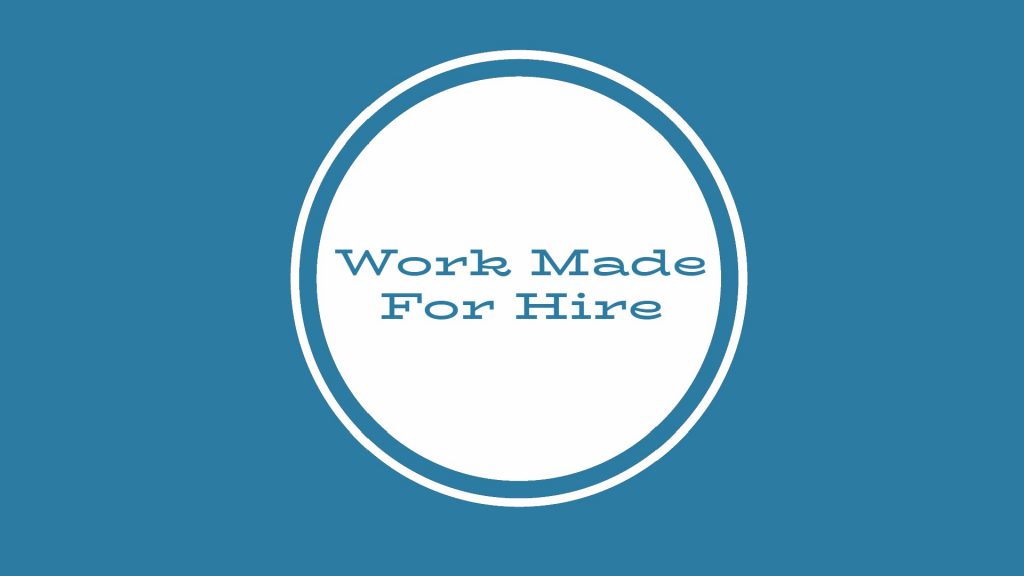
If you are hiring an independent contractor to create copyrightable subject matter, and you want to own the copyright in the resulting work product, be sure to have that contractor sign a written contract that specifically states that copyright ownership is being transferred. Even if you have paid the contractor for the work, and you both intend that ownership be transferred, the contractor will still own the copyright in the deliverables unless there is a writing, signed by the contractor, to the contrary. This is a key concern if your contractor has created subject matter that will be critical to your business – software, graphics, text, photos, any kind of protectable digital asset. If you do not secure ownership, the contractor may later object to how you are using the works differently than intended at the time of the contract, and claim infringement. Or the contractor could grant a license in the same work to another party, even one of your competitors.
The Copyright Act contains a couple of provisions that relate to this issue. The first one pertains to the definition of “work made for hire”. If an employee creates copyrightable subject matter within the scope of his or her employment, that is a work made for hire, and the employer owns the copyright. But note how that relates to employers and employees. Contractors are in a different category. There are other kinds of works that are “ordered or commissioned” that can be considered works made for hire, even if created by an independent contractor. But in any event, the Copyright Act says that these are works made for hire only “if the parties expressly agree in a written instrument signed by them that the work shall be considered a work made for hire.”
Let’s say you have not established that the contractor’s work is a “work made for hire”. You could still have the contractor assign his or her rights in the deliverables. Again, the Copyright Act requires this to be in writing. You cannot just agree on a handshake that ownership of copyright has been transferred. The statute provides that “[a] transfer of copyright ownership, other than by operation of law, is not valid unless an instrument of conveyance, or a note or memorandum of the transfer, is in writing and signed by the owner of the rights conveyed or such owner’s duly authorized agent.” Note that the contractor – the one making the assignment – has to sign the written document.
Paying attention to these issues on the front end of hiring an independent contractor will help ensure clear rights in the future, avoid future tangles and disagreements, and ultimately save time and money by avoiding costly dispute resolution.
Evan Brown is a technology and intellectual property attorney in Chicago. Twitter: @internetcases


 Evan Brown is an attorney in Chicago practicing copyright, trademark, technology and in other areas of the law. His clients include individuals and companies in many industries, as well as the technology companies that serve them. Twitter:
Evan Brown is an attorney in Chicago practicing copyright, trademark, technology and in other areas of the law. His clients include individuals and companies in many industries, as well as the technology companies that serve them. Twitter: